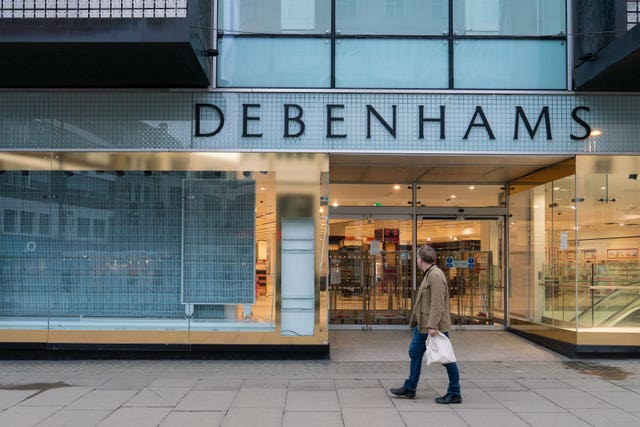
The Insolvency Service paid out £453.4 million in missing wages and benefits to workers at firms that went bust last year, according to new data.
The payments made by the agency, which is part of the Department for Business, Energy and Industrial Strategy (BEIS), were at the highest levels in a decade although the various company lifelines provided by the Chancellor meant the number of firms going insolvent fell.
A total of £297.5 million was paid out in redundancy pay, whilst £93.3 million was for months that would have been earned working a notice period, according to numbers obtained under the Freedom of Information Act by real estate adviser Altus Group and seen by the PA news agency.

A further £28.4 million went on unpaid holiday pay and £34.2 million on outstanding payments for wages, overtime and commission owed.
The money comes from the National Insurance Fund, going to former members of staff as a result of their employer entering into either administration, liquidation, a CVA or another form of corporate insolvency
The amount paid was up by 31% on the previous year – £107.3 million higher than the £346.1 million paid during 2019.
This was the highest amount paid out of the National Insurance Fund at any time during the last decade driven by the high street crisis taking total payments from the fund to more than £3 billion during the last decade.
However, the £280 billion of Government support for businesses to survive during the pandemic is believed to have helped keep the actual number of underlying company insolvencies down – falling 27% on 2019.
Despite the Government funds, several big-name retailers went bust in 2020, leading to significant redundancies across the high street.

Laura Ashley saw 155 stores close, with 2,300 job losses; Brighthouse closed 240 stores with 2,700 redundancies and Debenhams lost 7,000 staff last year.
More job losses are expected to follow in 2021 as Debenhams sinks into liquidation and Arcadia stores close for good.
Around 109,407 positions in the sector were affected last year, with 47% of those employees losing their jobs compared with around one third during the previous recession in 2008, according to the Centre for Retail Research.
The research group said this demonstrated that retailers going bust are now much larger and the effects on staff more pronounced than during the global financial crisis with lockdowns and restrictions leading to permanent shifts in shopping habits.
Continued insolvencies could, in turn, reduce the amount the Government collects in business rates in the future – and experts are calling on Mr Sunak to ensure the current rates holiday on retailers, leisure and hospitality services is extended to keep viable firms afloat.
Council income from business rates in England is set to rise to £24.8 billion during 2021/22 up from £15 billion collected during 2020/21 if the business rates holiday is not extended, as part of a basket of wider business support, set to be announced at the Budget on Wednesday.
Robert Hayton, UK president of property tax at Altus Group, said: “Ending the holiday too early is one material pressure on company finances that risks affecting the recovery from the pandemic now the end is in sight.”
He added: “The Chancellor must use his upcoming Budget to ensure that viable businesses are adequately supported through a discerning targeted extension.”


Comments: Our rules
We want our comments to be a lively and valuable part of our community - a place where readers can debate and engage with the most important local issues. The ability to comment on our stories is a privilege, not a right, however, and that privilege may be withdrawn if it is abused or misused.
Please report any comments that break our rules.
Read the rules here